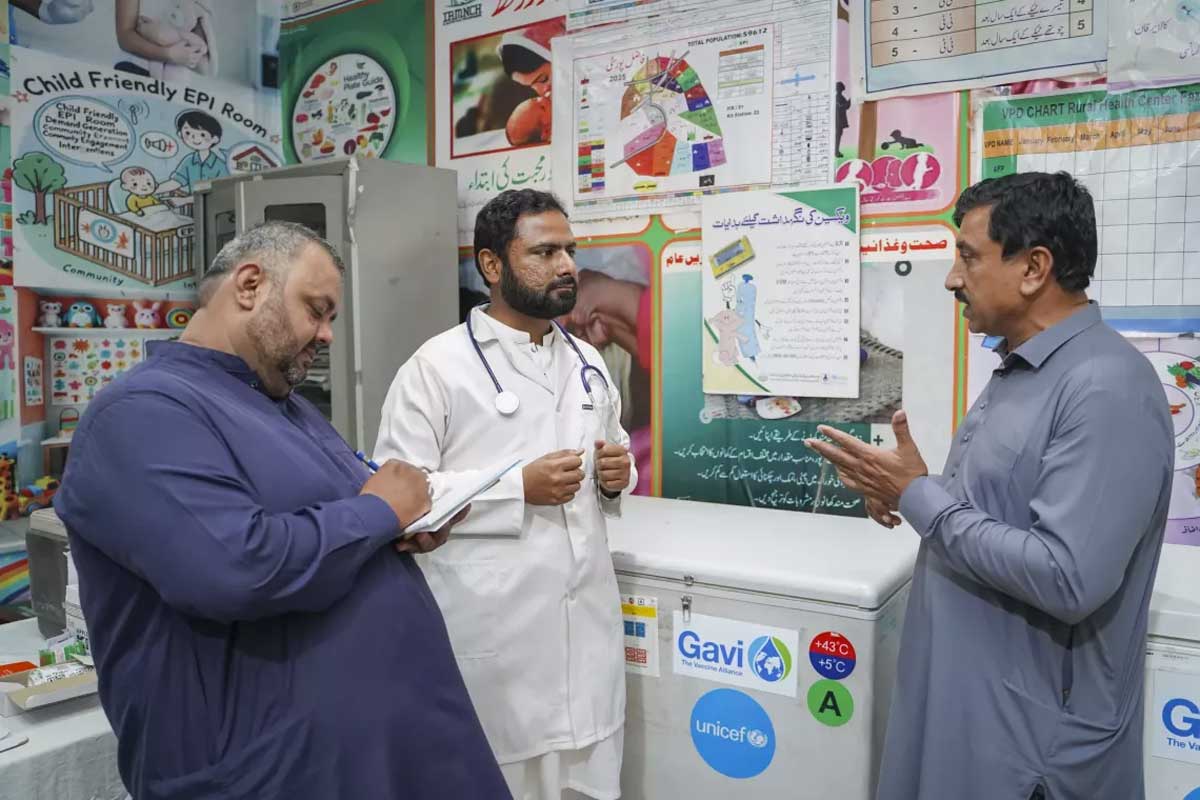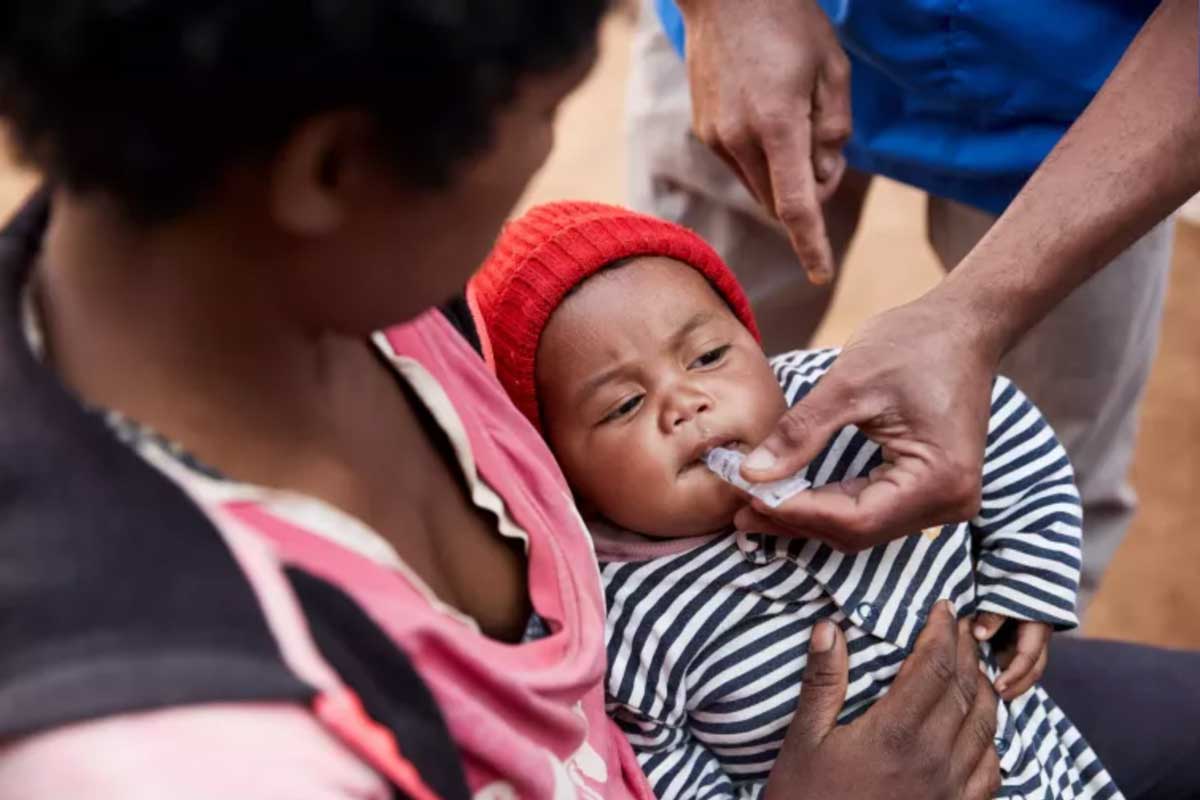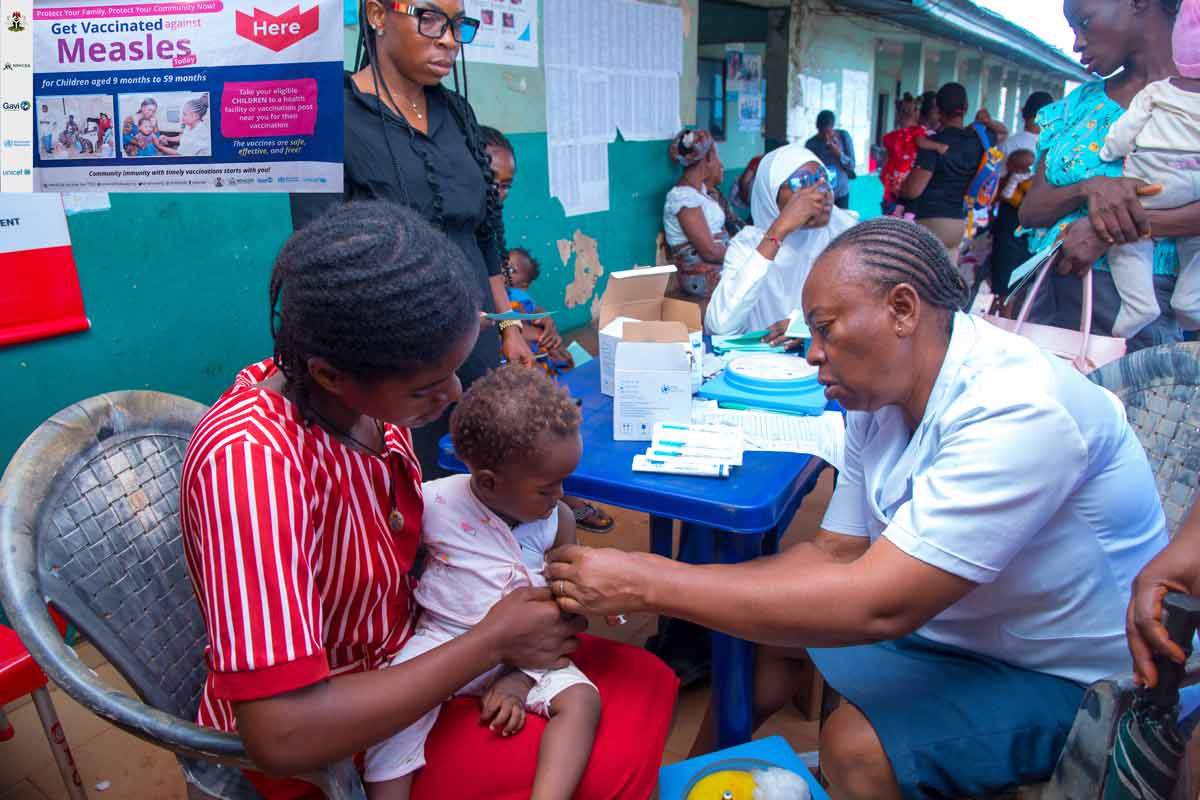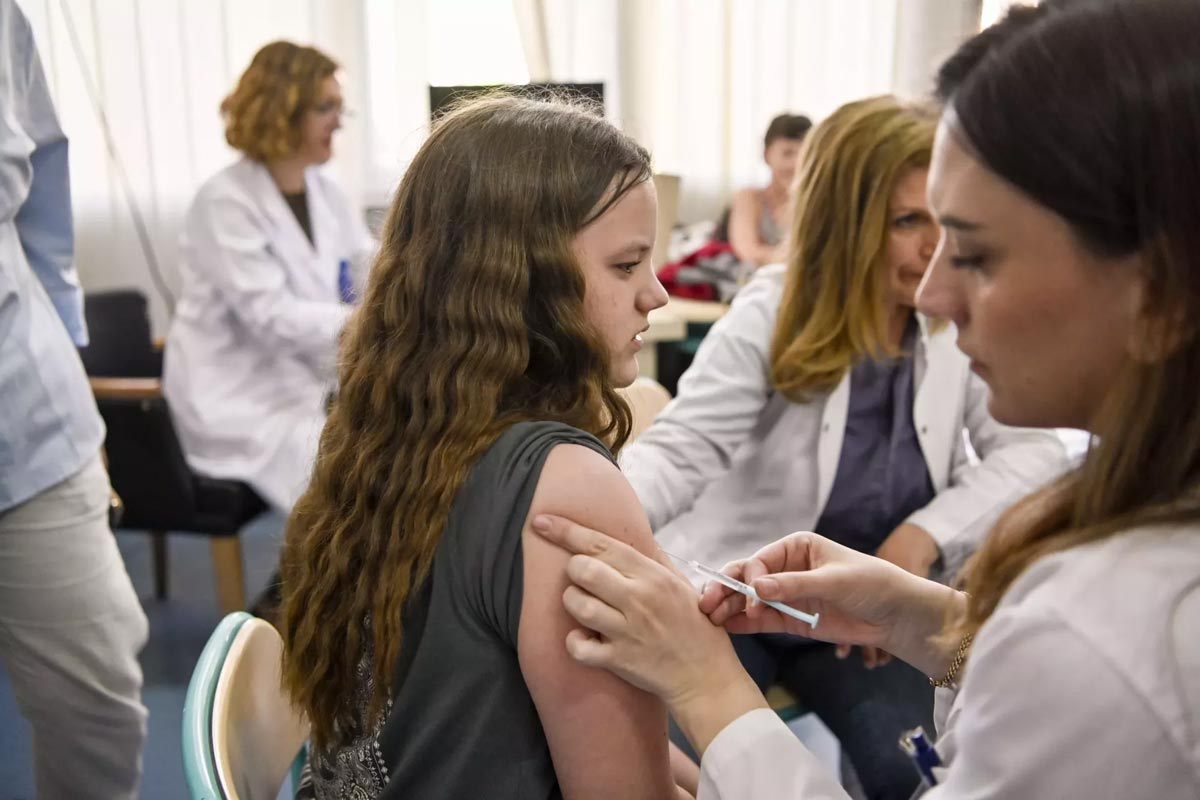How community-led solutions are strengthening immunisation in Pakistan
With support from Gavi, UNICEF is strengthening the cold chain and boosting immunization services for flood-affected communities.
- 17 April 2025
- 4 min read
- by UNICEF
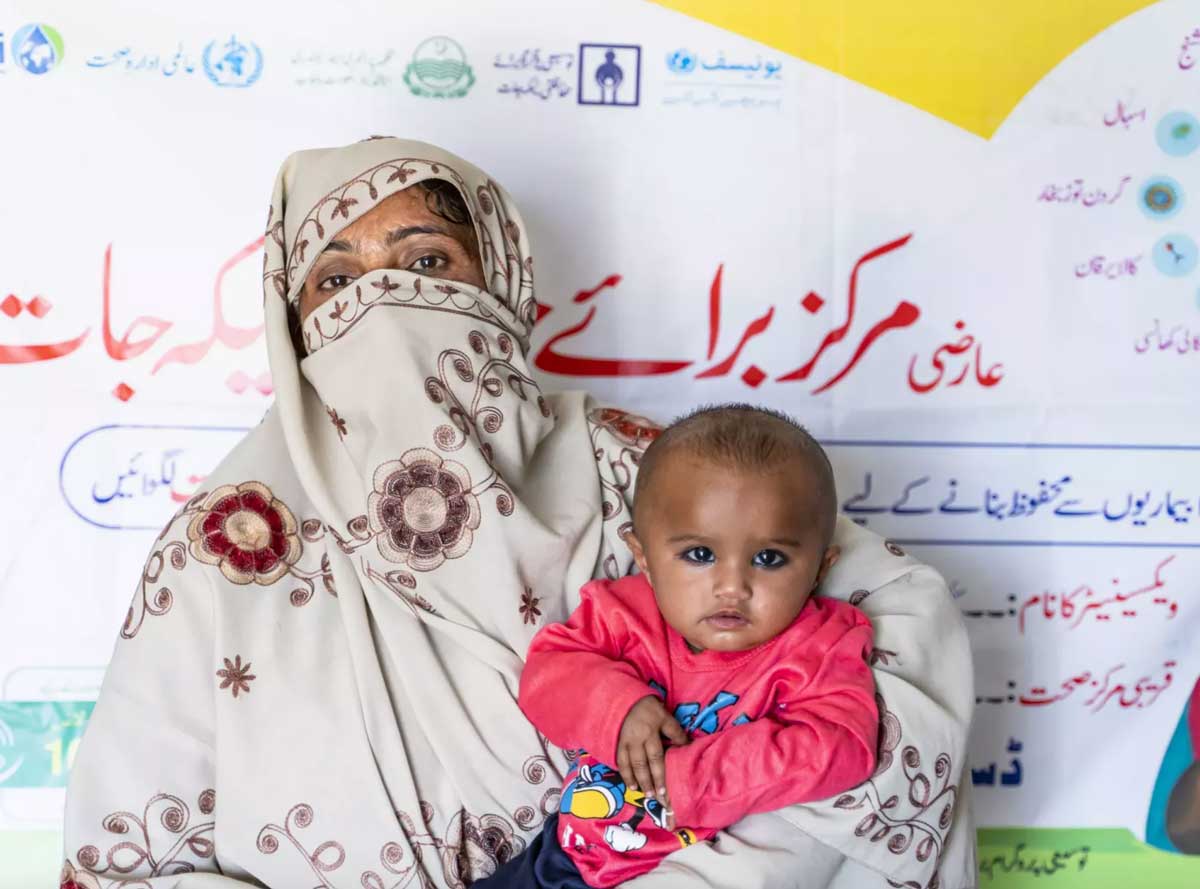
Husna giggles and bounces on her mother’s lap as they wait for her turn to be immunized. She is curiously looking around and trying to slip to the floor to crawl.
Nasreen (30) has brought her four-month-old daughter Husna to the vaccination outreach site in Basti Sahu village, Rajanpur, Punjab.
During the historic floods in 2022, immunization services were compromised in 45 districts across Pakistan, including Rajanpur. Almost 450 health facilities were damaged and essential cold chain equipment for vaccine storage was damaged or destroyed.
With support from Gavi, the Vaccine Alliance, UNICEF is strengthening immunization services in flood-affected areas by repairing and replacing cold chain equipment, mobilizing communities, trainings vaccinators and expanding outreach services.
“The 2022 flood was a disaster for us. The floodwaters submerged our entire village, washing away everything we had accumulated over generations. For over two months, we were living in tents on the roadside. Our homes, schools and health centres were destroyed, everything was gone. We didn’t even have drinking water. Thank heavens we survived all that,” recounts Nasreen.
“We have now rebuilt our homes, and we are happy to have vaccinations available in our village to protect our children against diseases,” adds Nasreen.
Community-Driven Solutions Brings Vaccines to Doorsteps
Local communities are part of the solution to strengthen immunization services. Community members provide locations for temporary outreach sites called “kit stations,” which could be in schools or private dwellings, bringing immunization services closer to the children who need them.
Announcements at local mosques, by community influencers and health workers compliment these efforts, helping generate vaccine demand and encouraging more children to get vaccinated. In Punjab, this approach plays a critical role in improving immunization outreach services.
“In the past, it was not common for us to vaccinate our children, but over time, health workers and vaccinators have raised awareness in the community. We now ensure our children are vaccinated against diseases,” says Nasreen.
“We have easy access to this vaccination site in our village. It saves us time and the cost of travelling to distant health centres to vaccinate our children,” she adds.
In Basti Shahu, the kit station was established in a small private room provided by a community influencer, providing easy access for the local community.
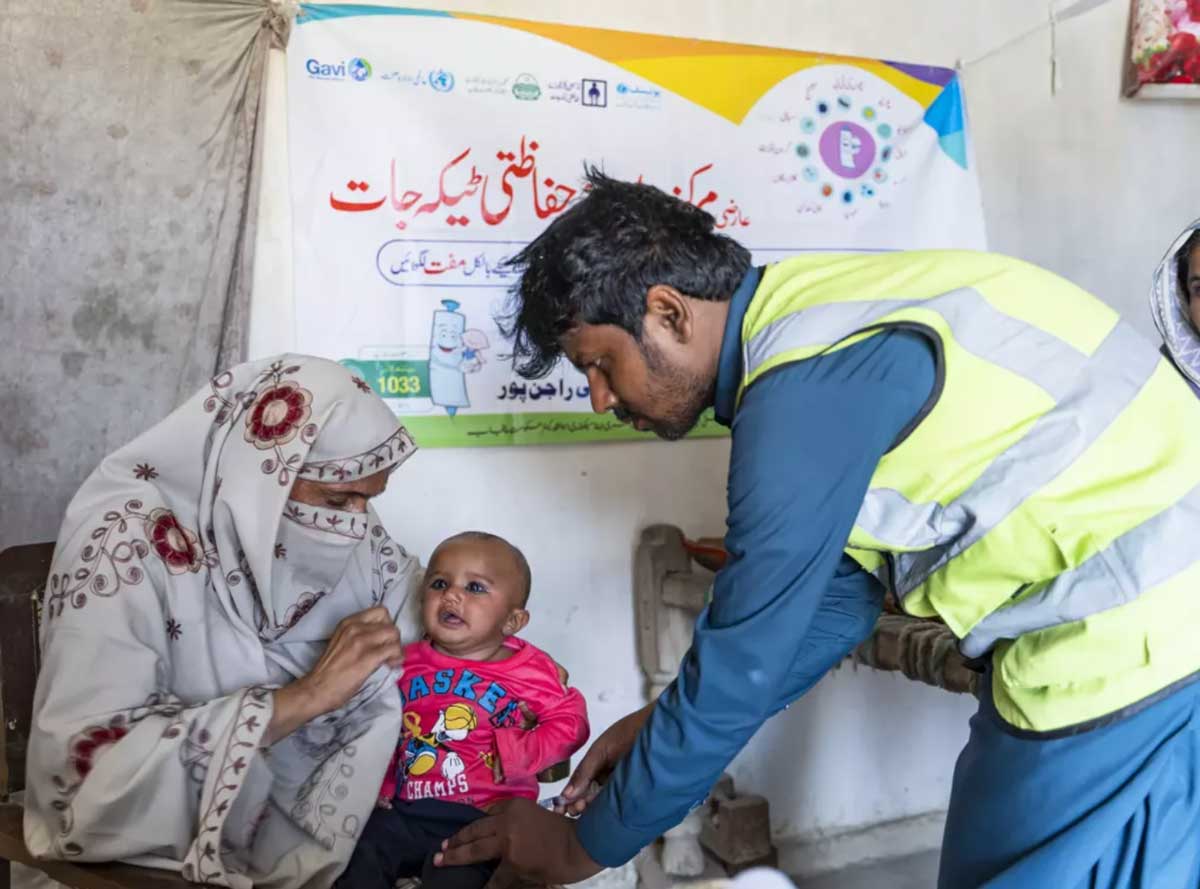
Adnan Haider, a trained vaccinator with the Expanded Programme on Immunization (EPI), carefully administers Husna’s vaccines against several diseases: polio, diphtheria, tetanus, pertussis (whooping cough), hepatitis B, and haemophilus influenzae type b (Hib), pneumonia and bacterial meningitis.
Adnan is one of the 5,000 EPI vaccinators in Punjab who received training on immunization and interpersonal communication under UNICEF and Gavi’s emergency response programme. He is responsible for 22 vaccination outreach Kit Stations with a target population of 51,000 children aged 0-23 months.
“People sometimes mistrust vaccines, and we work to convince them of the benefits of vaccination. Many people are wary of fever after vaccination, so we explain everything around how to manage a fever and emphasize how the vaccine protects their children from deadly diseases,” says Adnan.
Each Kit Station has a banner displaying key messages and information about vaccines and the vaccinator’s phone number, so people can contact them with questions or seek guidance and support.
Have you read?
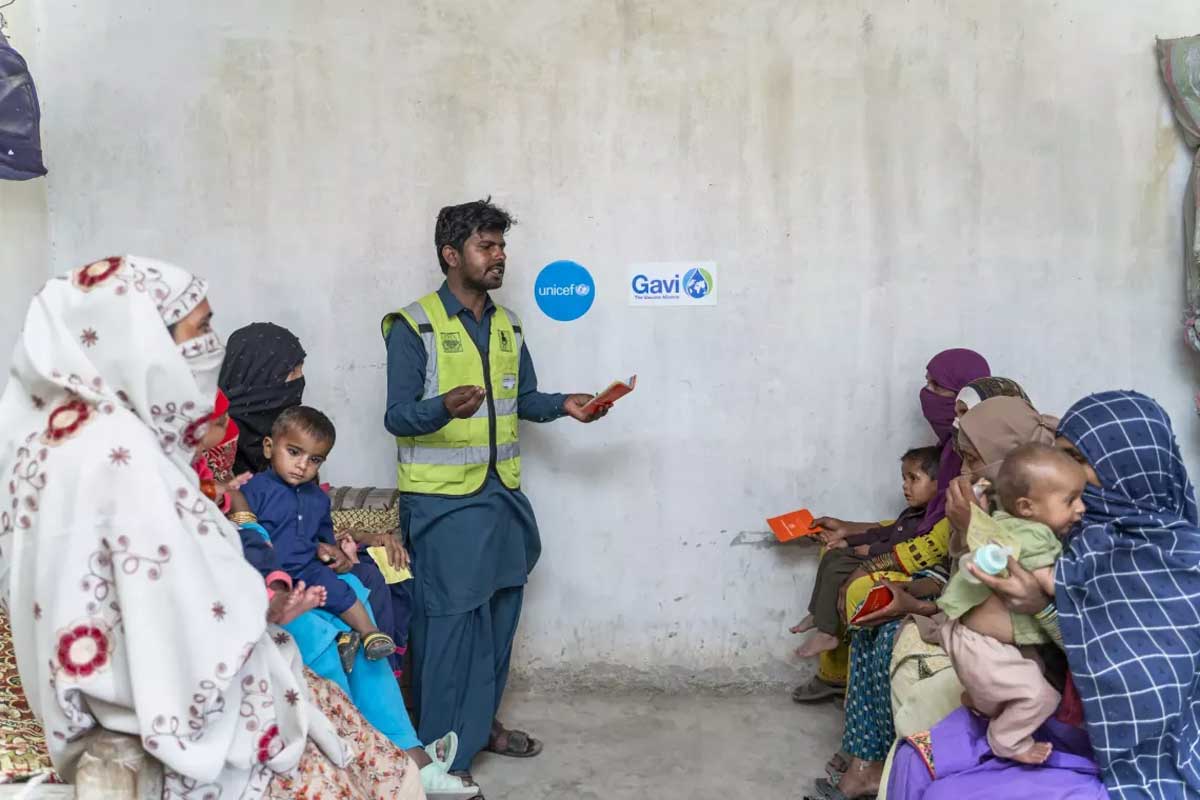
Strengthening the Cold Chain for Enhanced Immunization
“We really had difficulty in supplying vaccines to far-flung areas due to the cold chain equipment damaged by floods. It would take a lot of time for the vaccinators from the flood-affected areas to go to Rajanpur city and get the vaccine from the store in the District Health Office,” says Muhammad Altaf, District Superintendent Vaccination (DSV) Rajanpur.
In close collaboration with federal and provincial governments, UNICEF and Gavi have replaced 210 cold chain equipment units and repaired a further 144 through the emergency response programme. This ensured continuity of immunization services for children under 5 across 45 districts in Balochistan, Punjab, Sindh, Gilgit-Baltistan and Khyber Pakhtunkhwa.
“Thanks to support from Gavi and UNICEF, cold chain equipment was replaced with solar powered refrigerators which helped in managing the cold chain of vaccines in rural health facilities with unstable electricity. This reduced costs and vaccine supply times and improved the quality of immunization services overall,” added Muhammad Altaf.
